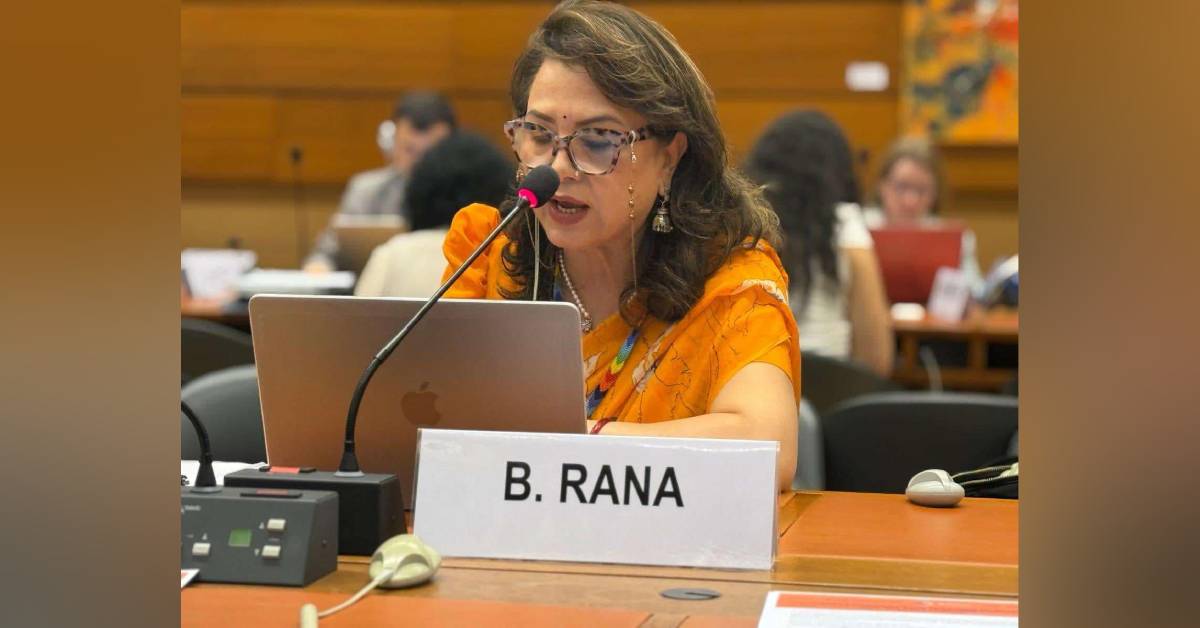

 20.54°C काठमाडौं
20.54°C काठमाडौं

Kathmandu: Bandana Rana, a member of the UN Committee on the Elimination of Discrimination against Women (CEDAW) and Chair of the Global Network of Women Peacebuilders (GNWP), raised pressing concerns about gender-based violence and harmful gender stereotypes in Thailand during the 91st session of CEDAW’s Constructive Dialogue with the Thai Government.
Rana acknowledged the country’s notable progress in advancing women’s and girls’ rights. However, she pointed out gaps in Thailand’s legal and policy frameworks, including the Domestic Violence Act (2007), which lacks strong enforcement and survivor-centered protections. While welcoming recent Cabinet-approved amendments to expand the definition of violence, she urged the Thai government to prioritize their swift enactment and ensure they are victim-centric.
Addressing online threats, Rana emphasized the urgency of legislative action. “Women and girls are continuously subjected to technology-facilitated violence. Do you have plans to enact comprehensive legislation that criminalizes online gender-based violence and protects women’s digital rights?” she questioned.
On the issue of data, Rana mentioned that outdated and fragmented data hampers efforts to track gender-based violence effectively, especially among marginalized populations. She urged the government to improve monitoring, collect disaggregated data, and bridge the gap between prevalence and reporting.
Similarly, she drew attention to harmful traditional practices such as bride abduction and female genital mutilation, urging Thailand to criminalize these practices explicitly and strengthen community awareness efforts.
Through a series of detailed questions, Bandana Rana encouraged the Thai government to adopt survivor-centred approaches, enhance legal protections, and work with youth, men, and boys to transform harmful norms and build a more inclusive and just society for all women and girls.